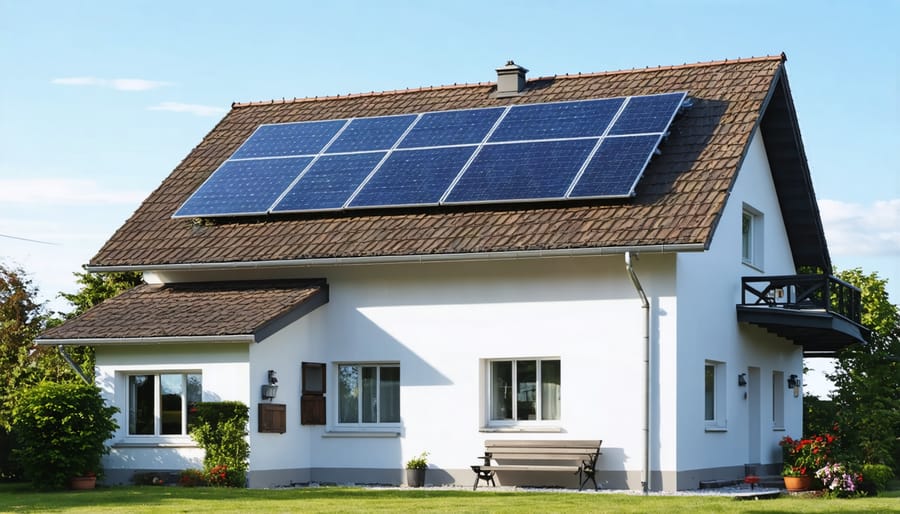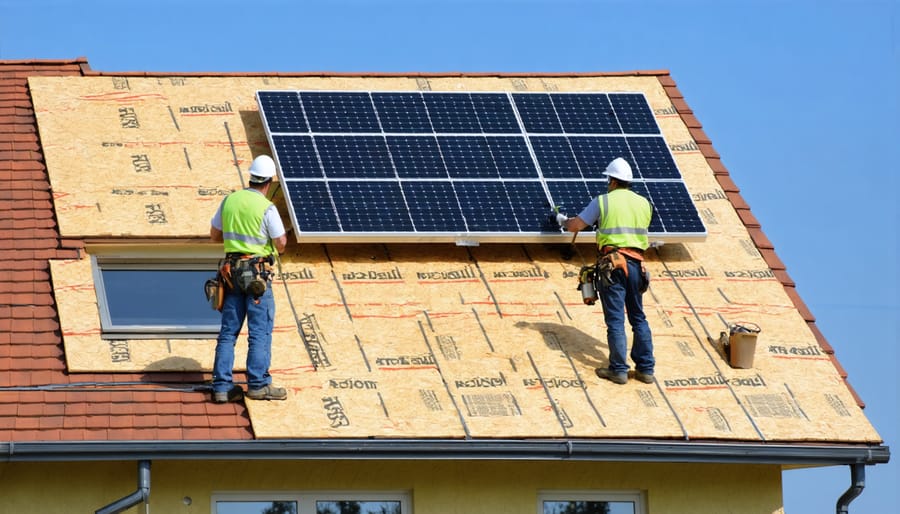The UK’s Zero Carbon Renovation Fund represents a £450 million investment in transforming existing buildings into energy-efficient, low-carbon structures. This groundbreaking initiative, launched by the Department for Business, Energy & Industrial Strategy, aims to accelerate the decarbonization of the built environment by providing financial support for comprehensive retrofit projects. Eligible applicants, including businesses, public sector organizations, and social housing providers, can access grants covering up to 50% of project costs. By embracing zero waste initiatives and innovative retrofit solutions, the fund seeks to reduce carbon emissions, improve energy performance, and create a more sustainable future for the UK’s building stock. With the potential to support over 120,000 jobs and stimulate economic growth, the Zero Carbon Renovation Fund marks a significant step forward in the nation’s journey towards net-zero carbon emissions by 2050.
What is the Zero Carbon Renovation Fund?

Funding Sources
The Zero Carbon Renovation Fund is primarily financed through a combination of government grants, private sector investments, and green bonds. The UK government has allocated a significant portion of its climate change budget to support this initiative, recognizing the crucial role of building retrofits in achieving national net-zero targets. Additionally, socially responsible investors and green finance institutions have shown keen interest in funding projects that align with their sustainability goals. The fund also leverages innovative financing mechanisms, such as green mortgages and energy performance contracts, to attract private capital and ensure the long-term viability of the program. By diversifying its funding sources, the Zero Carbon Renovation Fund aims to create a sustainable and scalable model for financing building retrofits across the UK.
Eligibility Criteria
The Zero Carbon Renovation Fund is open to public sector organizations, such as local authorities, schools, hospitals, and other government-owned buildings. Eligible projects must aim to significantly reduce the carbon footprint of existing buildings through extensive renovations. This can include upgrades to insulation, windows, heating and cooling systems, lighting, and renewable energy integration. The fund prioritizes projects that demonstrate innovative approaches to creating an energy-efficient home or building, with a focus on scalability and replicability. Applicants must provide detailed plans, energy performance targets, and cost estimates. Collaborative projects involving multiple public sector organizations are encouraged. The fund also supports the development of skills and knowledge within the construction industry to deliver high-quality, low-carbon renovations. By targeting public sector buildings, the fund aims to create a ripple effect, inspiring similar projects in the private sector and accelerating the transition to a net-zero built environment.
Benefits of the Zero Carbon Renovation Fund
Reducing Carbon Emissions
The Zero Carbon Renovation Fund plays a crucial role in reducing the carbon emissions of UK homes. By providing financial support for energy-efficient upgrades, the fund enables homeowners and landlords to implement measures that significantly decrease their properties’ carbon footprint. These measures include installing high-performance insulation, upgrading to energy-efficient heating systems, and incorporating renewable energy technologies such as solar panels and heat pumps. By targeting the residential sector, which accounts for a substantial portion of the UK’s carbon emissions, the fund contributes to the nation’s goal of achieving net-zero emissions by 2050. The fund’s impact extends beyond individual households, as it creates a ripple effect of increased demand for sustainable construction practices and products, ultimately driving innovation and transformation within the industry.

Creating Green Jobs
The Zero Carbon Renovation Fund is set to create a surge in green construction jobs across the UK. As more property owners access funding for energy-efficient upgrades, the demand for skilled professionals in sustainable construction will skyrocket. This includes roles such as eco-friendly architects, renewable energy specialists, insulation experts, and low-carbon building material manufacturers. The fund will not only support existing jobs but also drive the creation of new positions to meet the growing need for green renovation projects. By investing in training programs and apprenticeships, the industry can develop a workforce equipped with the knowledge and skills necessary to deliver high-quality, sustainable renovations. This job growth in the green construction sector will contribute to the UK’s economic recovery while simultaneously advancing its net-zero ambitions.
Lowering Energy Bills
Energy-efficient renovations funded by the Zero Carbon Renovation Fund can lead to significant long-term savings for homeowners. By improving insulation, upgrading to energy-efficient appliances, and installing renewable energy systems, households can reduce their energy consumption and lower their utility bills. These renovations not only help the environment by cutting carbon emissions but also provide financial relief for homeowners, especially in the face of rising energy costs. Over time, the savings generated from these energy-efficient upgrades can offset the initial investment, making them a smart choice for both the planet and the budget. As more homeowners take advantage of the Zero Carbon Renovation Fund, the collective impact on energy conservation and cost savings will be substantial.
Success Stories
The Zero Carbon Renovation Fund has already made a significant impact on the UK’s housing stock, with numerous success stories showcasing the benefits of this innovative initiative. One notable example is the renovation of a 1930s semi-detached home in Manchester. Through the fund, the homeowners were able to install a ground source heat pump, solar panels, and high-performance insulation, reducing their carbon emissions by an impressive 80% while also lowering their energy bills.
Another success story involves a Victorian terraced house in London. The owners utilized the fund to replace their outdated gas boiler with an air source heat pump, upgrade their windows to triple glazing, and install a mechanical ventilation with heat recovery (MVHR) system. These improvements not only drastically reduced the home’s carbon footprint but also significantly enhanced indoor air quality and thermal comfort.
In rural Gloucestershire, a farmhouse dating back to the 1800s underwent a remarkable transformation thanks to the Zero Carbon Renovation Fund. The owners installed a biomass boiler, solar thermal panels, and a rainwater harvesting system, alongside a comprehensive insulation upgrade. The result was a self-sufficient, low-carbon home that seamlessly blends traditional charm with modern sustainability.
These success stories demonstrate the tangible impact of the Zero Carbon Renovation Fund, inspiring homeowners and construction professionals alike to embrace sustainable renovation practices for a greener future.
Conclusion
The Zero Carbon Renovation Fund plays a pivotal role in the UK’s journey towards a greener future and achieving its ambitious net-zero emissions target by 2050. By providing essential financial support and incentives for decarbonizing existing buildings, the fund encourages the adoption of energy-efficient technologies and sustainable construction practices. As the built environment accounts for a significant portion of the country’s carbon emissions, the successful implementation of this fund will be instrumental in reducing the sector’s environmental impact. Ultimately, the Zero Carbon Renovation Fund represents a critical step forward in creating a more sustainable and resilient built environment for generations to come.

